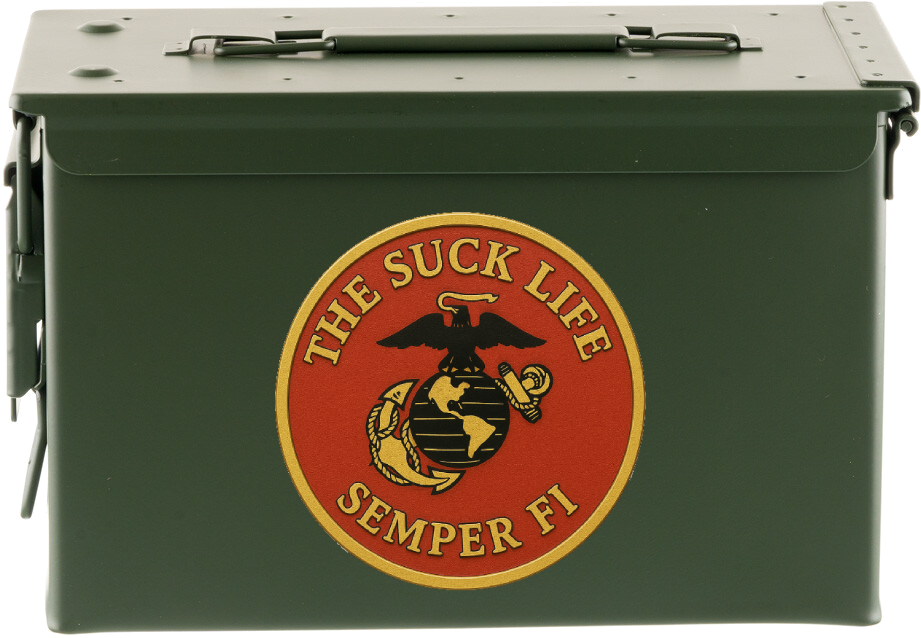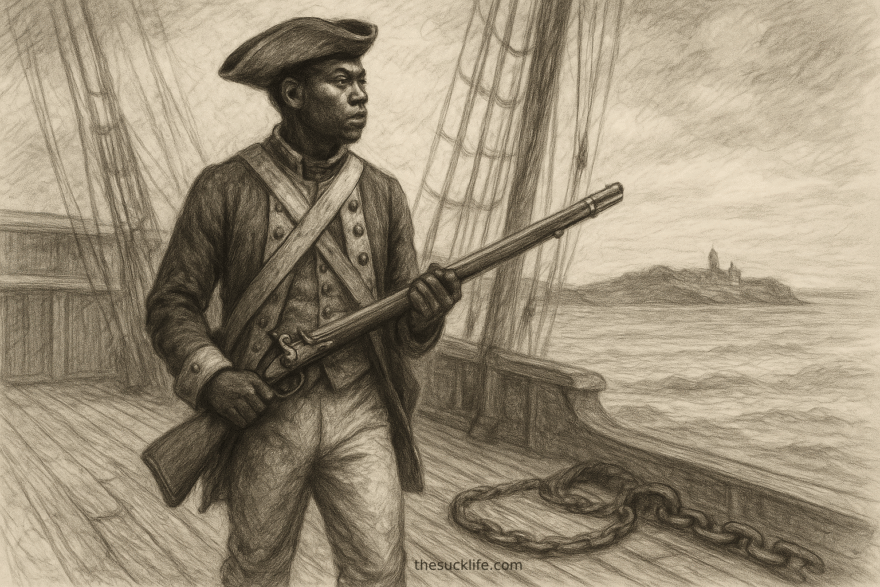Jonathan Martin, also known as Keto, holds the quiet distinction of being the first documented Black Marine in United States history. Born into slavery in Delaware, he lived on William Marshall’s plantation and was likely skilled as a blacksmith. In April 1776, when the Continental Congress permitted Black men’s enlistment, Martin was recruited into the Continental Marines. Whether he was a runaway slave seeking refuge or enlisted with permission remains unclear, but stepping aboard that ship meant stepping into something bigger than chains, into a uniform, into history, into the fight for a freedom he was denied on land but ready to defend at sea.
Martin was assigned to the Marine detachment aboard the USS Reprisal in May 1776 in Philadelphia, serving under Marine Captain Miles Pennington. His service placed him at the heart of early naval operations against British forces. The Reprisal, commanded by Captain Lambert Wickes, would become the first American vessel to enter European waters when it carried Benjamin Franklin to France in October 1776 to begin negotiations with Louis XVI. Martin stood among the men with musket and cutlass, trained to board ships, man the guns, and hold the deck when it mattered most. He wasn’t just breaking free of his bonds, he was breaking the mold of what an American Marine could be.
From June 1776 until October 1777, Martin sailed on the Reprisal through four significant engagements against the British. In November 1776, the ship captured two British vessels near Nantes. After wintering in French ports, the Reprisal joined with the Continental vessels Lexington and Dolphin in April 1777 to form a squadron that cruised the British Isles, attacking Irish linen merchant ships. Between May and June 1777, this squadron captured 18 enemy ships. The life of a Continental Marine was brutal: cramped ships, short rations, constant danger, and the weight of defending a revolution while in foreign waters.
The end came quick and merciless. On October 1, 1777, the Reprisal was lost off the coast of Newfoundland. All 129 aboard, except the cook, perished when the ship went down. Martin’s body was never recovered, his name fading from ledgers and muster rolls, buried beneath salt and silence. There would be no pension, no recognition, no carved stone to mark his place in the Corps’ memory.
Yet his legacy remains undeniable. At a time when Black men were denied the very rights they were helping to secure, Martin served in the Corps with honor. He fought under a flag that would not yet claim him as fully American. His presence, armed, uniformed, and willing, carried a weight heavier than powder or shot. He wasn’t supposed to be there, yet he was. And in that quiet act of defiance, he became part of the Marine Corps’ earliest identity: hard, edged, unrecognized, and unrelenting.
Jonathan Martin’s story isn’t just a footnote in Marine history, it’s a challenge. To remember not just the names carved into marble, but the ones written in water. To honor the men who bore the burdens without ever sharing in the glory. He was the first Black Marine, and definitely the kind of man whose fire forged the Corps we know today. When the Continental Marine Corps ended in 1783, 35 Black men had served in its ranks. When the Marines were re-established in 1798, they would be banned from service until 1942, making Martin’s service all the more remarkable.

Ads suck. This site is 100% ad-free and reader-supported.
If this article added value to your day or meant something to you, toss a couple bucks in the ammo can to keep us in the fight. Thank you.




 Semper Fidelis
Semper Fidelis

